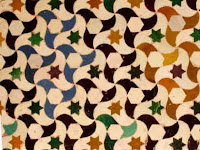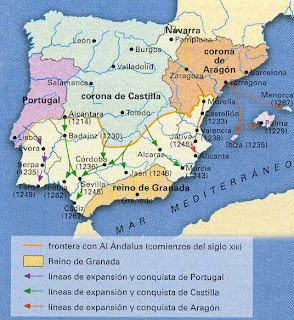 Well, I finished my novel a couple of days early (hate chasing deadlines in a panic) but now the official ending has happened, and we can all celebrate and move on to editing, I guess, in NaNoFiMo (National Novel Finishing Month).
Well, I finished my novel a couple of days early (hate chasing deadlines in a panic) but now the official ending has happened, and we can all celebrate and move on to editing, I guess, in NaNoFiMo (National Novel Finishing Month).Actually, I want to use my momentum to write a shorter piece for Maybe Quarterly, so I may well put it aside for a while.
Why tell you this?
Well, people I have told basically ask me two questions. Friends ask “When can we read it?” and I tend to reply “Er, um, I dunno, I haven’t even proofread it for the stuff spell-checkers miss, I haven’t read it myself” and so on. Although I did send the draft to a couple of fellow conspirators, who may sample it, cut it up, etc. But as we work on collaborative multimedia productions, we don’t have many secrets from each other…
I wrote it fast, as part of NaNoWriMo, precisely to get past the internal censor and critic who so easily stops us doing anything – but that doesn’t mean I feel proud or confident about it, yet. I don’t feel ready for any criticism or feedback either, and I certainly don’t want any ‘supportive friends’ saying “how wonderful” just out of kindness.

The other question, from friends, colleagues, even strangers, I have no answer to.
“What’s it about?”
A killer question, to which I “er, um” even more. I mean – what’s life about, for goodness sake?
If people asked me what kind of book I tried to write I would say something like ‘a philosophical novel’ – no guns, no car chases, no sex – talking heads and minor adventures – think “Zen and the Art of Motorcycle Maintenance” or a movie like “Dinner With Andre”. (not that I’m comparing it to those, of course.) I couldn’t choose a NaNoWriMo genre, so elected for ‘other’.
E-Prime
Without going into to my Maybe Logic Academy training too much (which might make it sound like a cult, or something heh heh) one of the basic exercises we use to clarify thinking involves expressing ideas in E-Prime. This simply involves using English without the verb ‘to be’.
I really don’t have time to deal with any readers’ internal cries of outrage, right now, because we have discussed it long and hard, many times, at the MLA.
Some people say they can’t see how such a simple change would change the way you think, others say they couldn’t do without the verb (and invent ugly convoluted examples of language to prove the elegance of needing to continue to use the verb, etc), yet others ‘prove’ to their own satisfaction that the whole exercise seems pointless to them, and archly continue to use it, but with ‘quotes’ signalled in the air, to highlight their awareness (see the title of this blog, for instance), without having to make the effort to rephrase anything.
After getting accused of taking it all too seriously (an E-Prime Nazi) many of us MLA students have tended to settle back into E-Choice, i.e. slackly allowing ourselves to employ the verb in casual conversation or writing, and only bringing out this ‘thinking tool’ when the language conjures up ghosts, illusions and spooks - like "Is There A God?", for instance, or "Are the Beatles better than Beethoven?" - where re-phrasing can remove dispute, or at least clarify that we can only describe what we see and believe, not what 'is'. But I refer you to the literature and debate on the subject (s) elsewhere. In my humble opinion, the E-Prime tool works very well to remove pseudo-objectivity, and reminds the user that opinions and observations remain essentially subjective.
Robert Anton Wilson whole articles on this subject which form good intros,(and he wrote two books entirely in E-Prime, but you wouldn’t notice - I like this piece from Quantum Psychology), or check out the General Semantics website.
So anyway:
“What ‘is’ it about?” appears like a meaningless question to me, which makes it difficult to answer.
Re-phrased as “How would you describe it?” or “What subject did you want to tackle?” or “what kind of characters do you use?” or “What time period did you set it in?” or “Do you hope people will find it amusing, enlightening, cheering, depressing, sad?” or “which point of view did you use?” etc. I might come up with some answers.
- I set it in the 1980s (before mobile phones and internet became widely available) .
- I set it in Spain (a country I love, which contains colourful stuff for writing - paradoxical contrasts between authoritarianism and anarchy, charm and ruthlessness, etc)
- I chose rootless and ‘on the road’ characters from several countries and cultural and religious backgrounds – outsiders, nomads, travelling players, artists, ‘gypsies’, immigrants, sailors, drug smugglers, etc. Some resemble me and my friends.
- I tried to express the possibility that such diverse people can get on with each other, in contrast to ‘settlers’ and ‘land-grabbers’ who seem to spend a lot of time fighting over territory – oh, and hating, or at least distrusting, low-life 'nomads', who don't want the same things that they do.
- I think of the south of Spain as the only part of Europe which didn’t spend two thousand years under Christian rule – and that, under Muslim rule, a period of time elapsed with relative tolerance. Tolerance among Muslims, Jews, Christians and Gitanos (Romany gypsies).
- Moorish Arabs brought all sorts of cultural benefits to our European civilization, which now seems air-brushed out of history, at least as it got taught to me. They translated the Greeks and Romans, worked with glass, chemistry, maths, astronomy, they encouraged learning, artists and scientists, etc. Their calligraphy also gave us the elegant and almost universal numerals - 1,2,3,4,5,6,7,8,9 - that work across language barriers.
- I think of The Alhambra as a perfect example of elegance, in contrast to the bombastic and bullying Catholic architecture, with doors so big to make you feel small (I guess, unless they expect visits from angels and Gods) and filled with ugly and terrifying images of tortured humans. Islam does not allow portrayal of real beings, or idols, so their beautiful tilework seems modern to my eye. I find the geometric shapes filled with stars very pleasing,
 and the Arabesques of calligraphy and vines and leaves satisfy my 'Irish soul'.
and the Arabesques of calligraphy and vines and leaves satisfy my 'Irish soul'. - By 1492 the Christians had not only destroyed the universities and libraries, but they drove the Muslims back to North Africa (or forced them to convert) suppressed Jews (equally in love with learning) and pushed Gitanos down to where they still find themselves even now – the lowest of the low – untouchables – Beneath The Underdog (to quote Charlie Mingus’ autobiog, a mongrel half-caste, himself). Oh, and they also went to grab America from the natives, of course, at the same time!
- I only hint at that, as a sub-text, of course. And relate at least some of it to the Cathar tradition, too (the first genocide, enacted by ‘Catholic Christians’), in the Provence and Barcelona areas (which links back to troubadours, Sufis, and another period of spacetime in which a cultured and democratic system thrived for a while, with a certain independence for women, a love of learning, a genuine modesty and gentleness among the religious 'leaders', etc).
- I am also aware that a period of culture like that relates to particular leaders, not to a religion. I have no desire to romanticise the Moorish culture. That modern radical Islamics like Al Quaida want to 'reconquer Spain' (considering it 'occupied Muslim land') just proves my point. Everyone rolls the movie back just far enough to justify their own claims to land...because the Moors arrived in 711 and left in 1492...so the previous owners also have a prior claim to the land in my eyes. When do we get the Visigoth resurgencel?
- Anyway - the Moors came in, then the Christians reconquered it, and now the Muslims want to reconquer it, and so it goes on. Hence my 'homeless and landless' characters...
- An old anarchist atheist like me believes we won't get any real peace until we 'strangle the last lawyer with the entrails of the last priest' (I forget who said that) but those supposedly peace-loving religious people would probably want to stone me to death, or burn me at the stake, for that kind of attitude.
- And I have nothing against individuals from these cultures - just the belief systems themselves, and the memes connected to them, which make me feel as though I live on the Planet of the Apes at times. That, of course, gets considered intellectual arrogance. So part of what I wanted to write involves the 'hatred of intelligence'...



Of course, by the time I’ve said all that I realise that my humble little book will need a lot more research and editing to tackle so many ambitious themes. And if you read this far, great! Most people wish they had never asked, or have fallen asleep by now, or glazed over at my ‘usual rants’.
I don’t know what it ‘is’ about…or to paraphrase somone (maybe Groucho?) “It is about fifty thousand words”.
For scale: you just read about 1600 words - roughly what I had to write each day.
No comments:
Post a Comment